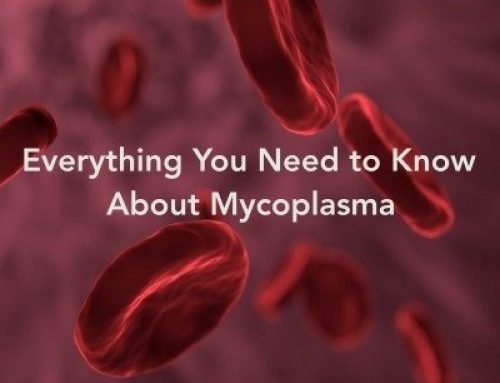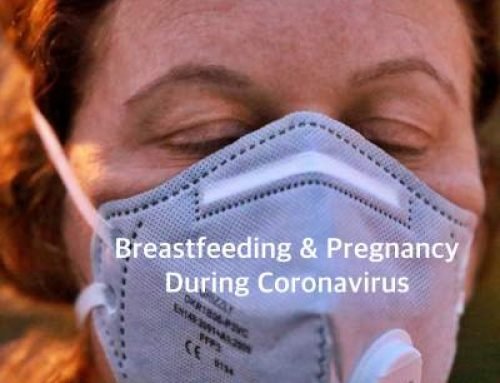Crohn’s Disease – Complete Guide
Crohn’s Disease- Complete Guide
According to Mayo Clinic, Crohn’s disease is an inflammatory bowel disease which triggers an inflammation in the digestive tract and it is usually manifested through severe diarrhea, pain in the abdomen, tiredness, malnutrition, and loss of weight. It is important to note that this inflammation can include distinct areas from the digestive tract in different people. Often times, the inflammatory process spreads deeper into the layers of the bowel tissue.
For most patients, the condition is rather painful and draining and cause serious complications. Even though there is not yet a remedy for this illness, the conventional therapies available are known to significantly lower the severity of the symptoms and may also lead to long-term remission. The treatment allows patients to function well, as noted on Mayo Clinic.
As explained by the Crohn’s & Colitis Foundation, this illness may occur in up to 780,000 American citizens and both men and women have the same risk of developing it. Though it can occur at any age, it is most frequent among adolescents and young adults.
To increase the awareness of this common health problem, this article will be focused on presenting the major symptoms, causes, and therapy options.
What Are the Major Symptoms of Crohn’s?
As explained on Mayo Clinic, in some individuals who have Crohn’s, solely the last part of the small intestine is affected whereas in others, it is only the colon which is attacked. Regarding the symptoms, though they usually develop slowly, sometimes they may occur all of a sudden without any warning whatsoever. There are situations when one experiences no symptoms and this period is known as remission.
The major signs outside of remission are the following ones:
- Fever
- Excessive tiredness
- Diarrhea
- Abdominal ache and cramps
- Bloody stool
- Mouth sores
- Low appetite
- Loss of weight
- Ache or drainage near the anus
- Skin, joint, and eye inflammation
- Liver or bile duct inflammation
- Late growth or sexual development (in children)
Causes & Risk Factors
In the past, as pointed out on Mayo Clinic, it was thought that stress and diet contributed to Crohn’s, however, nowadays, doctors are aware that these factors may worsen the condition, but they are not the main trigger. Though the reason for it is still unclear, there are additional factors that may lead to it, like poor immunity and genetics. The former refers to some bacterium or a virus causing the illness. Namely, when the immunity tries to fight it off, there is an excessive immune response which makes the immunity to invade the cells in the digestive tract as well. The latter has to do with one’s genes. Namely, one has higher risk of getting this illness if they have family members who also have it (around 20 percent, as suggested by Web Md), but this is not always the case.
Now, let us take a look at the risk factors for Crohn’s disease:
- Taking non-steroidal anti-inflammatory meds
Meds such as ibuprofen and naproxen sodium may trigger bowel inflammation which may additionally worsen the condition.
- Age
Though one may develop it at any age, younger age puts you at higher risk and most people are diagnosed with it prior or around their 30s.
- Smoking
Cigarette smoking may aggravate the condition and increase one’s chance of having to undergo surgery. This is why Crohn’s sufferers are advised to cease smoking.
- Ethnicity
Despite the fact that this illness may happen regardless of the ethnic group you belong to, whites and individuals of Easter European Jewish descent are the most prone to it. Nonetheless, the risk has been elevating among African Americans from the U.K. and North America as well.
- The place where you live
Living in an industrialized country or an urban area increases one’s risk of developing this condition. This may happen due to leading a diet rich in refined and high-fat foods and other environmental factors.
The Diagnosis Process
According to Web Md, there are several diagnostic procedures and tests to differentiate Crohn’s from other inflammatory gastrointestinal conditions such as ulcerative colitis. Here are the steps through which one will go if they are suspected to have this illness:
- The doctor takes a look at the patient’s medical history
- A specialist may order a colonoscopy or sigmoidoscopy in order to get bowel tissue for proper analysis
- Upper endoscopy may be also recommended so that the esophagus, stomach, and the duodenum is checked out
- Capsule endoscopy is used for the testing of the further part of the small intestine (this is a small camera which is swallowed)
- Blood tests
- Samples of stool
- Specific X-rays like MRIs or CT scans
What Are the Treatment Options for Crohn’s?
As emphasized on Web Md, though there is no treatment that can treat Crohn’s, the current therapies allow patients to lead normal lives.
After being diagnosed with this condition, the first approach is therapy consisted of meds like anti-inflammatory drugs, corticosteroids, immune system modifiers, antibiotics, biologic therapies, and antidiarrheals. The evaluation to the patient’s response to the therapy is done several weeks after starting it and the therapy is prolonged until one enters remission. When this happens, as seen on Web Md, maintenance therapy may be taken into consideration. In case there is no improvement, a more aggressive therapy may be applied.
There are cases when individuals who have this condition require surgery in order to address possible complications such as hemorrhage, intestinal obstruction, fistulas, and abscesses or to help patients who do not respond well to the meds therapy. In most of operated patients, the diseased area of the bowel is taken out whereas the two healthy ends of the bowel are assimilated together. However, this is not a cure for the illness; it just allows the patient to live symptom-free for several years.
Diet Tips for Crohn’s
As suggested on Crohn’s and Colitis, there is no scientific data showing that food may trigger this condition or that the intestinal inflammation is directly impacted by it. Inflammation is thought to be a mixture of several factors; however, since we are not all the same, there are some foods and drinks that may intensify the signs in some individuals with Crohn’s disease.
What’s more, poor intestinal absorption and the reduction of appetite during Crohn’s illness may deprive the body from pivotal nutrients so it is crucial to lead a more mindful diet. This can be done in consultation with your physician and a dietitian.
Here are some beneficial diet tips for Crohn’s patients:
- Lower the consumption of dairy
- Opt for low-fat foods more than high-fat ones
- Increase your fiber intake
- Eat smaller meals
- Elevate your water intake
Insurance
Embry Women’s Health is committed to providing quality, affordable health care. We’re in-network with all major insurance plans, including Aetna, Blue Cross Blue Shield, Cigna and UnitedHealthcare. No insurance? No problem. We offer a simple fee schedule for those who wish to pay out-of-pocket. Click the button below for our complete list and more information:














Leave A Comment